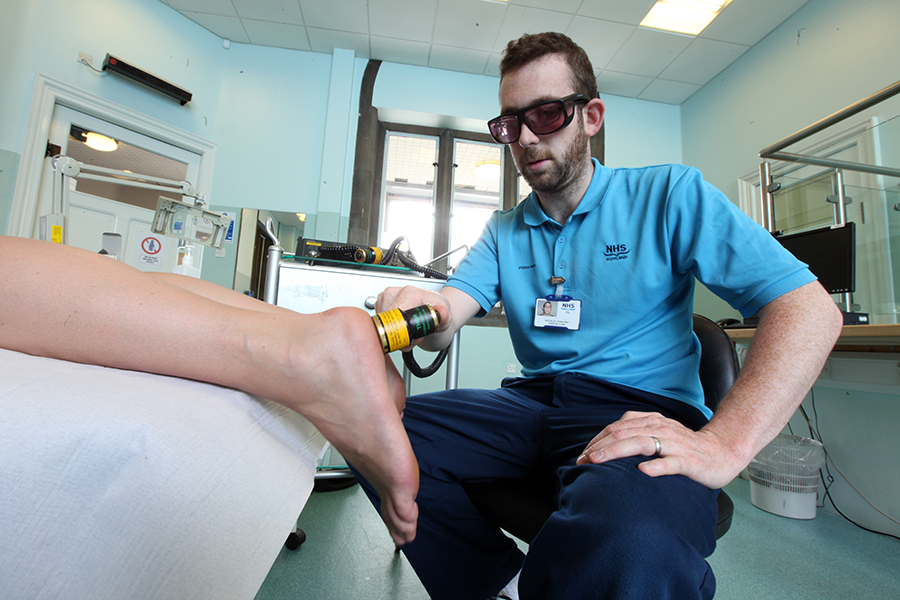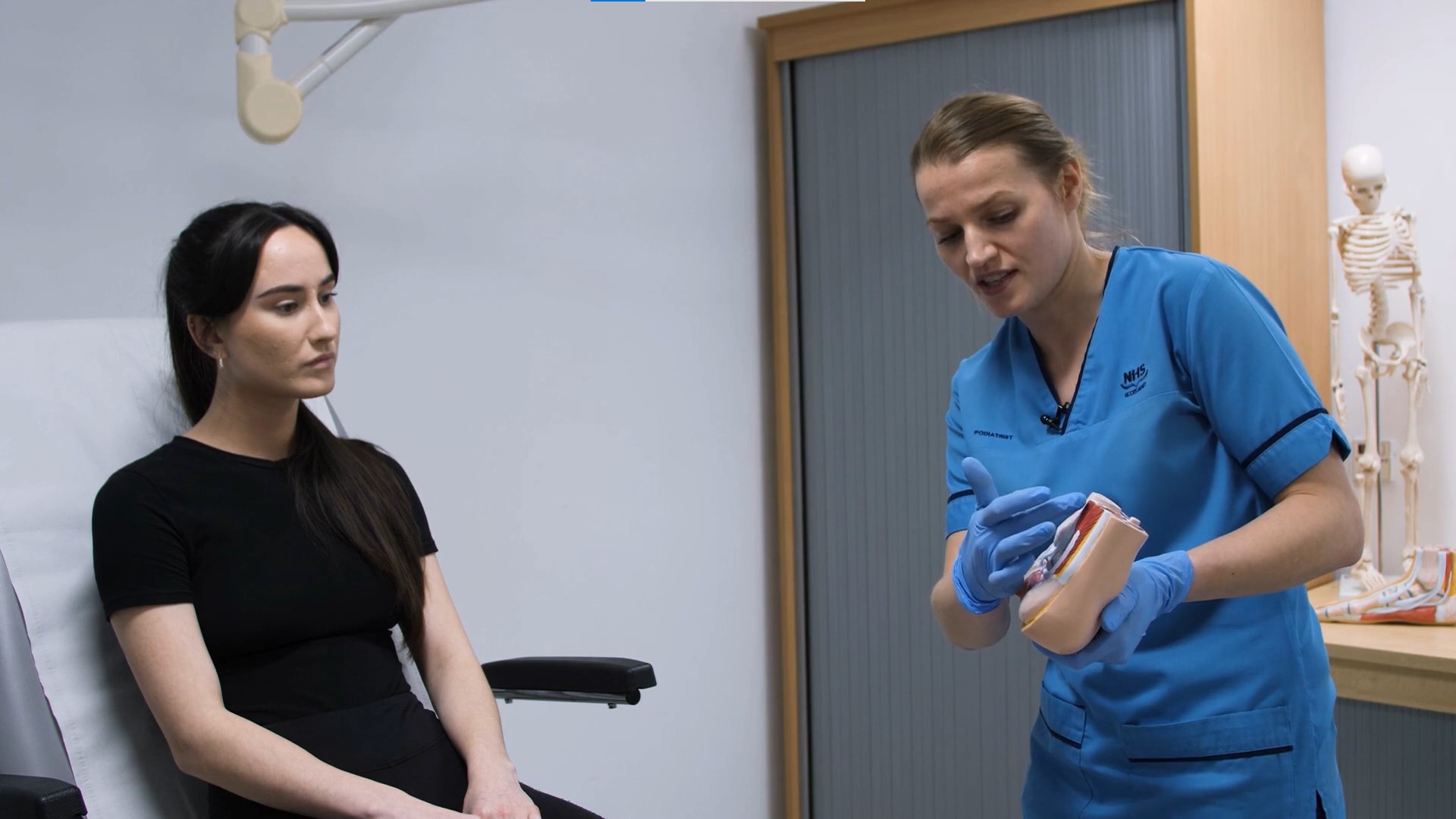Previous
Physiotherapist
To become a podiatrist in the NHS, you must complete a pre-registration undergraduate degree programme approved by the Health and Care Professions Council (HCPC).
Podiatrists diagnose and treat a wide range of mobility and medical conditions of the feet and lower limbs. They help to improve a person’s movement, independence, and quality of life.

To get on a course that could lead to a career as a podiatrist, useful subjects include:
Speak to your guidance teacher about subjects offered at your school.

You may find it helpful to get some healthcare experience by doing a work placement or volunteering. You’ll get training, increase your knowledge, and learn new skills. This could help you when applying to university, college or a new job with NHSScotland.
Most universities accept a wide range of qualifications, giving you the option of applying directly from school or going to college first.
If you choose to go to college, you could do an HND in Applied Biological Science or Applied Sport Science.
Widening participation supports adult learners who want to go to university. If you’re an adult with few or no qualifications, you could get into higher education through the Scottish Wider Access Programme (SWAP). Many universities also provide access programmes to help you get the degree entry qualifications you need.
In Scotland, 2 universities offer undergraduate programmes in Podiatry approved by the HCPC:
Pre-registration undergraduate programmes take 4 years full-time.
You should contact individual universities to find out about specific entry requirements.
After graduation, you must register with the HCPC. You can then apply as a newly qualified podiatrist for vacancies in the NHS.
As a podiatrist, you'll diagnose and treat a wide range of mobility and medical conditions that affect the foot health of people of all ages. These include:
Tasks include:
You'll need these skills:
Podiatrists work with other healthcare professionals, including:
You could work in:

Check out our 360 videos to learn how podiatrists diagnose and treat problems affecting the feet and lower legs.
You'll meet Louise, an advanced podiatrist who specialises in musculoskeletal and orthopaedic conditions at NHS Grampian.
By viewing each of the videos, you'll see how Louise talks to the patient and does some diagnostic tests to try to identify the cause of their pain. She then discusses the results of the tests with the patient and makes a diagnosis. In the last video, Louise prescribes orthotic insoles and an exercise plan to help strengthen the patient's feet and legs.
During your career, you’ll be expected to keep your skills and knowledge up to date through Continuing Professional Development. The Royal College of Podiatry (RCPod) offers:
Visit the RCPod website for more about training and CPD courses.
With training and experience, you may choose to specialise in a particular area of practice such as:
You could also progress to advanced or consultant podiatrist roles. As head of a podiatry service, you would manage a budget and a team.
There are also teaching and research opportunities.
When you become a qualified podiatrist, you must register with the HCPC to work in the NHS. You can also join the Royal College of Podiatry.

Discover the range of AHP careers you can choose in the NHS.
Allied health professions
Our blog includes how-to guides, case studies, and career resources.
Discover more